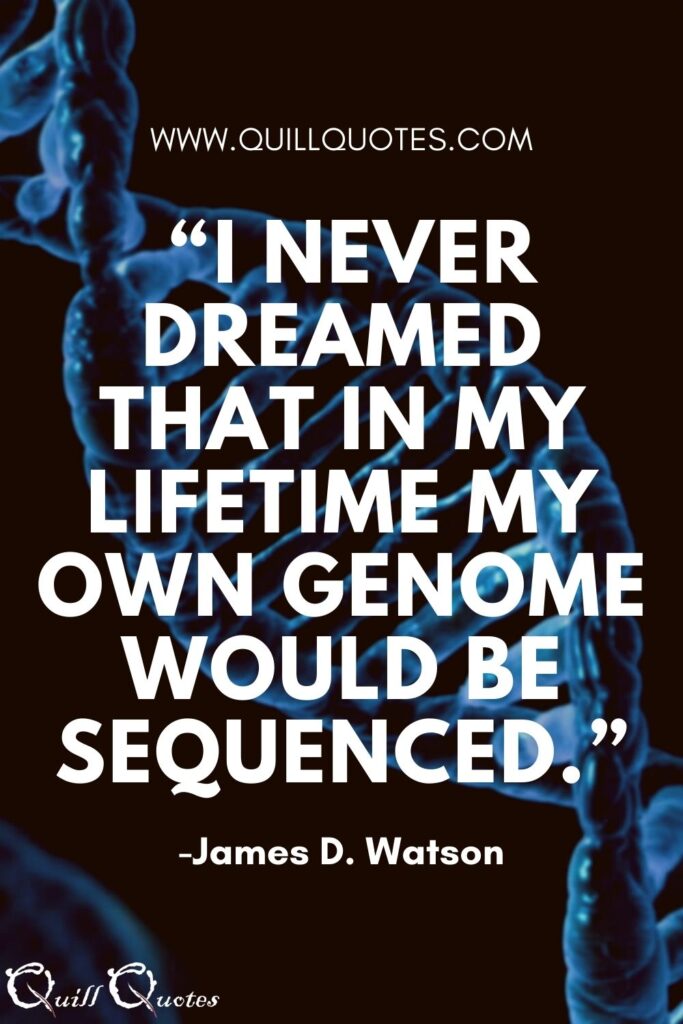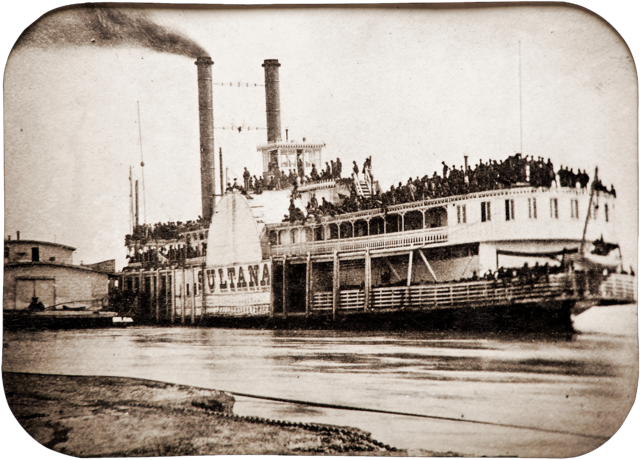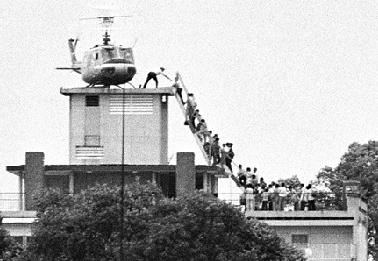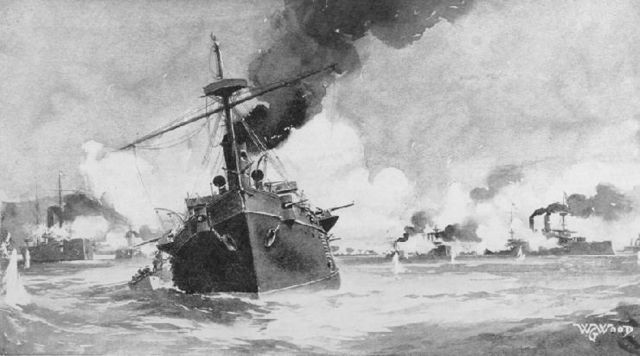There is always much to learn from quotes and their historical significance. Read on for a collection of quotes and general history from April 25th – May 1st.

April 25, 1953
“We’ve discovered the secret of life.”
– Francis Crick
The double-helix structure of DNA discovered by James Watson and Francis Crick was first published in the April 25, 1953 issue of the journal Nature. Deoxyribonucleic acid (DNA) carries the genetic instructions responsible for all known organisms and many viruses. Watson, Crick, and Maurice Wilkins received the 1962 Nobel Prize in Physiology or Medicine “for their discoveries concerning the molecular structure of nucleic acids and its significance for information transfer in living material”. Unfortunately, Rosalind Franklin’s work on the x-ray diffraction studies crucial to understanding DNA’s structure was not given proper credit at the time. Although, even if she were properly attributed, her untimely death from cancer at the age of 37 in 1958 would have kept her off the Nobel Prize given the rule against posthumous awards.

April 26, 1986
“There has been an accident at the Chernobyl Nuclear Power Plant. One of the nuclear reactors was damaged. The effects of the accident are being remedied. Assistance has been provided for any affected people. An investigative commission has been set up.”
– Vremya, Russian news program, April 28, 1986
The worst nuclear disaster in history occurred on April 26, 1986, at the No. 4 reactor in the Chernobyl Nuclear Power Plant near Pripyat, Ukrainian SSR. The accident was caused by a combination of reactor design flaws and not following protocol during a simulated power outage safety test. The reactor explosion and subsequent fire spread airborne radioactive contamination across much of the USSR and Western Europe. The scope of the disaster was not initially made public and only began to be revealed a few days later when the exclusion zone around Chernobyl, which remains in effect today, was established. Although fewer than 100 deaths are directly attributed to the accident, the eventual total death toll is likely to be in the thousands due to increased radiation exposure-related deaths. If you haven’t already seen it, check out the HBO miniseries Chernobyl!
April 27, 1865
The worst American disaster on water
– Son Volt, Sultana
The Titanic of the cold Mississippi was the Sultana
The steamboat Sultana sank near Memphis, Tennessee on April 27, 1865, when three of the boat’s four boilers exploded. Although only designed for 376 passengers, she was carrying 2,137 at the time due to the high price being paid by the U.S. government for the return of Union prisoners released at the end of the Civil War. An estimated 1,168 people died in the disaster with another 760 injured being transported to Memphis hospitals. As the worst maritime disaster in United States history, the Sultana has sometimes been referred to as “the Titanic of the Mississippi”.

April 28, 1944
“If D-Day – the greatest amphibious operation ever undertaken – failed, there would be no going back to the drawing board for the Allies. Regrouping and attempting another massive invasion of German-occupied France even a few months later in 1944 wasn’t an option.”
– Douglas Brinkley
In preparation for D-Day, a large-scale rehearsal codenamed Exercise Tiger ended with the Battle of Lyme Bay on April 28, 1944. The exercise was held on Slapton Sands in Devon, England because of the similarity to Utah Beach where the American forces were tasked with landing. Unfortunately, poor coordination and communication between the U.S. and U.K. forces led to friendly fire and left a convoy of landing ship tanks (LSTs) open to attack from German E-boats. At least 749 servicemen died in the incident but little was ever reported about it due to the need for secrecy with the upcoming invasion of Normandy.
April 29, 1975
“The temperature in Saigon is 105 degrees and rising.”
– U.S. Embassy, Saigon evacuation code
Operation Frequent Wind signaled the final evacuation of American civilians and allied Vietnamese from Saigon at the end of the Vietnam War on April 29-30, 1975. During this time, more than 7,000 people were flown out of Saigon by helicopter to waiting U.S. Navy ships. There were so many incoming helicopters that some had to be ditched in the sea or pushed overboard after delivering their passengers to free deck space for others to land. While the operation itself was a success, President Ford later called it “a sad and tragic period in America’s history” with the evacuation symbolizing the ultimate futility of America’s involvement in Vietnam.

April 30, 1993
“With the appearance of communications networks and interconnected computers, we got the world wide web, and it changed the lives of most people, I think.”
– Marvin Minsky
On April 30, 1993, CERN announced the World Wide Web, invented by Timothy Berners-Lee in 1989, would remain free to anyone! This created a rapid shift to the Web from the Gopher protocol that had just introduced fees two months prior. While the terms “Internet” and World Wide Web” are often used interchangeably, they are actually two different things. The Internet is a global system of interconnected computer networks and the World Wide Web is a global collection of documents and other resources linked by hyperlinks. Today, the Web is central to everyday life but in 1993 the first websites for general use were just starting to become available.
May 1, 1898
“You may fire when you are ready, Gridley.”
– George Dewey
U.S. Commodore George Dewey gave that famous command on May 1, 1898, at the Battle of Manila Bay. As the first major engagement of the Spanish-American War, Dewey’s Asiatic Squadron managed to sink the entire Spanish Pacific Squadron with the death of just one sailor on the American side. The decisive U.S. victory marked the end of the Spanish colonial period in the Philippines and remains one of the most decisive naval battles in history. The victory brought Dewey much renown and he was promoted to Admiral of the Navy in 1903, making him the only person in U.S. history to have attained that rank.

In case you missed last week’s quotes, see History April 18th – 24th.
To never miss a Quill Quotes post, please subscribe via email and/or follow us on social media!
Leave a Reply